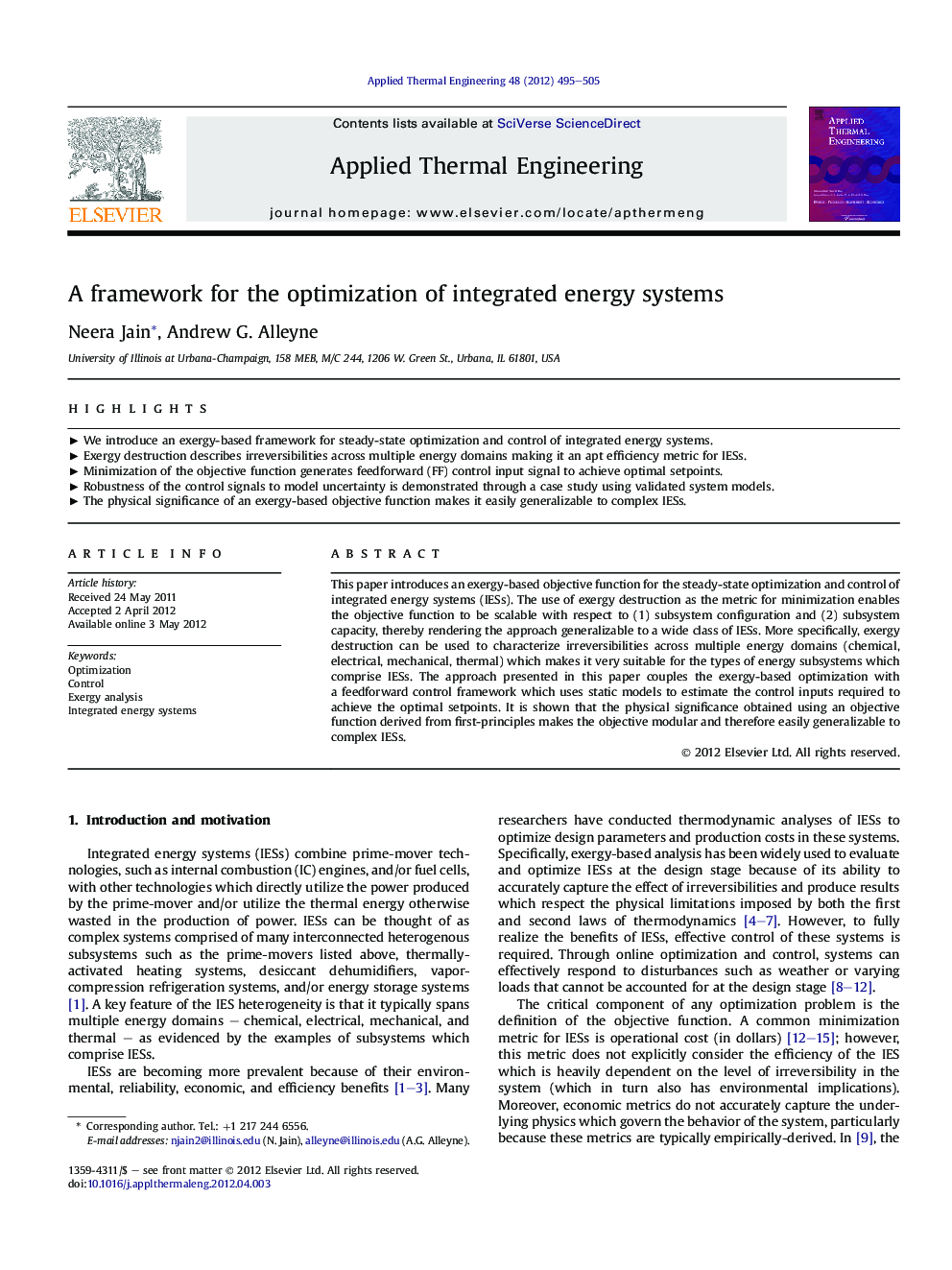| Article ID | Journal | Published Year | Pages | File Type |
|---|---|---|---|---|
| 647079 | Applied Thermal Engineering | 2012 | 11 Pages |
This paper introduces an exergy-based objective function for the steady-state optimization and control of integrated energy systems (IESs). The use of exergy destruction as the metric for minimization enables the objective function to be scalable with respect to (1) subsystem configuration and (2) subsystem capacity, thereby rendering the approach generalizable to a wide class of IESs. More specifically, exergy destruction can be used to characterize irreversibilities across multiple energy domains (chemical, electrical, mechanical, thermal) which makes it very suitable for the types of energy subsystems which comprise IESs. The approach presented in this paper couples the exergy-based optimization with a feedforward control framework which uses static models to estimate the control inputs required to achieve the optimal setpoints. It is shown that the physical significance obtained using an objective function derived from first-principles makes the objective modular and therefore easily generalizable to complex IESs.
► We introduce an exergy-based framework for steady-state optimization and control of integrated energy systems. ► Exergy destruction describes irreversibilities across multiple energy domains making it an apt efficiency metric for IESs. ► Minimization of the objective function generates feedforward (FF) control input signal to achieve optimal setpoints. ► Robustness of the control signals to model uncertainty is demonstrated through a case study using validated system models. ► The physical significance of an exergy-based objective function makes it easily generalizable to complex IESs.
